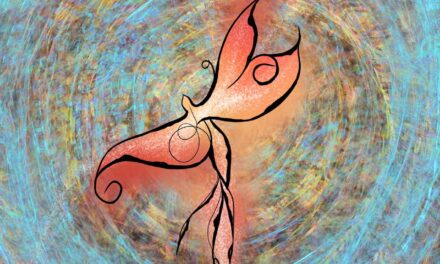The most relevant characteristic of the human being is the ability to live simultaneously in different levels of reality, and this is possible because man possesses other bodies in addition to the physical one. With the physical body he perceives matter by virtue of the contribution of the senses, while with the etheric-vital body he perceives the energetic quality of animated matter: these two realities are complementary and build the level in which sensations do act.
Through the mental body he experiences the world of thoughts and ideas; it is the mental faculty that allows one to make considerations and comparisons between things, elaborating judgments regarding the relationship with the world and interpretations through the use of imagination. When he experiences the level of dreams and visions, man is in the psychic mental in which he perceives Life through the impression that It exerts on him. In the body of the Soul he elaborates and experiments with what he has assimilated from the experiences lived in relation to the emotional impact felt and memorized internally. Finally, in the Divine sphere he has access to the true meaning of life by filtering objective reality with the entirety of his own Being, perceived as a consxious entity[1], that is, as a state of Awareness.
Understanding where the level of Awareness is located is a basic fact in order to appreciate the Mystical conception of man, since awareness is the place where the Essence is experienced through a state of attention without effort. Awareness is the level of the experience of being and not that of acting: it is an action that requires non-action, not understood as a state of inactivity or inertia with respect to living, but rather considered as a state of active vigilance, a process of exquisitely interior dynamic presence.
Being aware means being open, receptive and available to welcome sensations, impressions and perceptions while maintaining an attitude of neutrality, which we could define as a state of objective mentality. A neutral way of relating to reality, being predisposed to the experience of life; a spontaneous openness to being existence itself.
Awareness is therefore a state of vigilance and attention, of detached observation, but it is also a letting go to the experience without any subjective preconception prevailing over the objective evidence of that particular moment…
Awareness is therefore a state of vigilance and attention, of detached observation, but it is also a letting go to the experience without any subjective preconception prevailing over the objective evidence of that particular moment: what makes this concept difficult to understand is its apparent simplicity…
It is commonly believed that effort and practice imposed by the force of will can create particular abilities, but Awareness, being a state of being, does not fall within the field of disciplines that can be developed with a method or practical operation.
Awareness does not fall within the scope of imposed effort, but opens spontaneously to “vigilance” with respect to life events. To develop awareness, we do not have to produce new mental acquisitions, modify the abilities of thought, or even have particular analytical abilities or mnemonic talents, on the contrary, all this is an obstacle to the focus of attention necessary for conscious presence. All these abilities belong to the mental sphere, while mystical practice determines above all an activity of an internal, spiritual nature, in which analytical thought and reason are increasingly less active so as to create space for the effortless revelation inherent in the present moment.
We often talk about awareness arising in the absence of thought, and it is true; the mind, like other bodies, when governed by the Essence becomes a functional instrument at the service of the consxcious man.
If we perceive the experience of living by accentuating tranquility and inner quiet, we can accurately observe what arises in our Consxiousness, and be receptive to all the details of the related phenomena, remaining concentrated in the natural state of attention, in simply observing what is.
In this state, reality is experienced without the need to analyze and process data, which is essential when trying to understand or interpret. This absence of mental activity can be traced back to an “altered level of consxiousness”; after all, it is precisely this state of quietness in the head that is the natural condition of the mind.
The state of Awareness does not exclude the mind, it simply transcends it. A quiet mind is pure contemplative observation, never static, rather it is comparable to the calmness of a feline who, although resting, is at the same time also ready for action.
The state of Awareness does not exclude the mind, it simply transcends it. A quiet mind is pure contemplative observation, never static, rather it is comparable to the calmness of a feline who, although resting, is at the same time also ready for action.
Man is “consxient” of insomnia, of dreamless sleep, of the dream that he forgets upon awakening, and of many other things. Yet it is undeniable: man is always ”consxient”, but he is not always aware of himself. In fact, awareness always includes consxiousness, although there can be consxiousness even in the absence of awareness.
The wise men teach that the layman, while believing himself to be conxient, lives immersed in a dream, his personal dream. The same wise men affirm that thanks to self-knowledge it is possible to broaden one’s awareness, the only one capable of discerning whether one is actually living in a dream or is awake. The awareness briefly mentioned here is the natural ability to experience and witness to varying degrees the flow of thoughts, feelings and emotions with which life is animated.
Conscious observation of these inner realms, in addition to increasing self- knowledge, with practice promotes the development of an impersonal state in which non-essential activities lose both charm and power. In the impersonal state it is the Essence that disposes with conscious discrimination its own will of intent and direction.
Although the incarnate Spirit is intelligible and invisible, in every experience it is as concrete as any tangible reality, even though man is aware of it only when he is consciously participating in the impersonal life of his own Being.
In every dimension in which our conxciousness is located, there is a peculiar quality, a relevant nature capable of adapting precisely for that specific experience. There are different states of consxiousness and therefore multiple ways in which one is aware of one’s inner worlds. In any case, it is always Attention that determines the quality of the teaching inherent in each single experience, giving it or not the right sense and the desired depth
Awareness is therefore always influenced by the level of attention with which one considers the events experienced. Associating the quality of the experience only with the pleasantness or happiness that can derive from it is manifest ignorance, generally dictated by reiterated and crystallized personal beliefs. Any approach to Life naturally veils a subtle pretension, that desire and demand that reality adapts to one’s own “image and belief”. Reality, being in itself always and only what it is, can be experienced at its best only when one is aware that Life is a direct reflection of oneself.
This necessary assumption favors contact with the reality of one’s Being, aligning us with the laws of Creation. Accessing this state of awareness generates… further awareness. This approach becomes understandable when in conxciousness we realize that impersonality is our true reality and that everything else belongs to the imaginative world of mental hallucinations.
The reality just described is accessible to anyone, and it reveals itself when Intellect and Heart, freed from psychological overlaps (beliefs, convictions, inclinations), communicate with each other in a fluid and harmonious way. In this state of being, the veil that clouds the reality of Life thins and what appears, moment after moment, is the naked Truth seated in our Being. To err is human, to persevere is diabolical.
Good wandering then.
Hermes
[1] The adjective conscious, the words Consciousness and conscient are intentionally written with the letter x, to constitute a sort of “stumbling block” in order to remember the value of this term which defines the relationship between Spirit and Substance and which is often used in an improper or superficial way.








